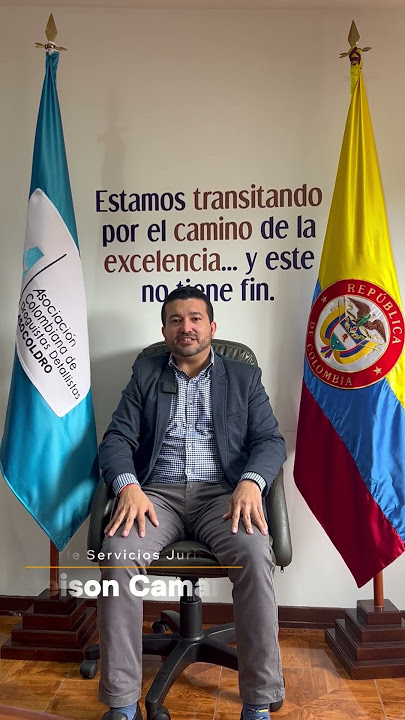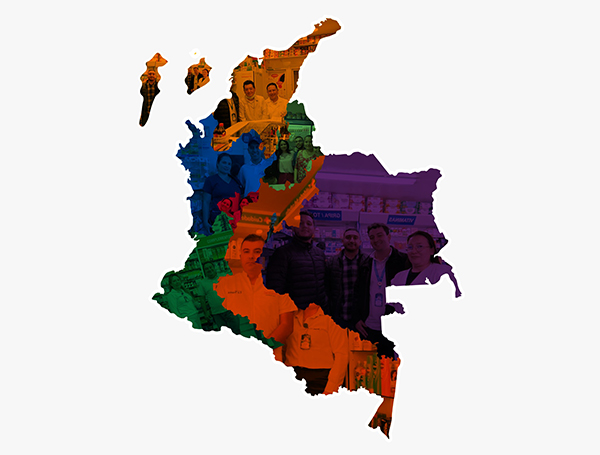Too many drugstores on the same block?: The union advocates for a minimum distance between pharmacies.

In Colombia, a drugstore or pharmacy must be at least 75 meters away from another. This was established by Law 232 of 1995 and reaffirmed last year by the Constitutional Court with Ruling C-479 of 2024. This ruling rendered unconstitutional Article 136 of Decree 019 of 2012, issued by the government of then-President Juan Manuel Santos, which had eliminated this requirement, allowing the uncontrolled proliferation of drugstores in strategic and commercial areas.

The Court declared the elimination of the distance rule between drugstores unconstitutional. Photo: iStock
However, for some stakeholders, this regulation affects free competition among different market players, a claim refuted by the Colombian Association of Retail Druggists (Asocoldro). According to Greisón Camargo, Asocoldro's director of legal services, the measure is not only legally necessary but also vital to guarantee equitable access to medicines in Colombia.
According to Camargo, the measure is not only legally necessary, but also vital to guarantee equitable access to medicines in Colombia. “Without this regulation, pharmacies are crowded into downtown areas, leaving those most in need of nearby access to medicines unattended: senior citizens, pregnant women, and mothers with sick children. Distance allows for more equitable coverage,” the executive emphasizes.

Greisón Camargo, director of legal services at Asocoldro. Photo: Asocoldro
We were the ones who filed the unconstitutionality lawsuit against Article 136 of Decree 019 of 2012. Our former director, Mr. Alfonso Cuitiva, brought the lawsuit because we believed that the then president lacked the authority to remove the Ministry of Health from the enforcement of the distance law. The Constitutional Court had already declared this law constitutional in 2000 through ruling C-997.
Why do you consider that this elimination by decree was unconstitutional? Because the Constitutional Court had already ruled on the issue, and as the final court, it rarely does so more than once. However, it has now done so for the second time with ruling C-479 of 2024. We fully support this decision by the Court, as it responds to a simple logic: we need to expand drugstore coverage throughout the country to improve accessibility to medicines, especially in vulnerable areas.
So it's not about having more pharmacies together, but rather about distributing them better? Exactly. It's not about having more drugstores close together, but rather bringing them to the outskirts of cities, to towns and villages. The problem is that without regulation, pharmacies concentrate in commercially strategic areas and forget their social function. Drugstores aren't just businesses: they play a fundamental role in public health. They are the first link in access to medicines.

Asocoldro. Photo: Asocoldro
In the working-class neighborhoods, drugstores were becoming fewer and fewer because the congestion was occurring in other areas. The only ones that remained were those belonging to our association, because even though the rule wasn't officially enforced, we did enforce it internally. We required our members to maintain social distancing to maintain consistency and because we always believed that the law was still in effect.
But in practice, many drugstores still didn't respect the 75-meter limit... Why is this distance so important? Because without this regulation, drugstores crowd downtown areas, leaving those most in need of nearby access to medicines unattended: seniors, pregnant women, and mothers with sick children. Distance allows for more equitable coverage. We celebrate the reinstatement of this requirement today thanks to the Court's ruling.

The Colombian Association of Retail Drugstores supports the measure. Photo: iStock
Welcome to everyone, whether you're a national or foreign company. But you must understand that we're governed by the law here. The Constitutional Court has every legitimacy to make these decisions. It makes no sense to say you want to sell cheaper medicines, but you can only do so if you're located next to another drugstore. That argument is inconsistent.
It's been said that under the current regulations, drugstores could only open in cities like Bogotá. What's your response to that? That's false. Bogotá has 1,580 km², and applying the 150-meter rule would allow for more than 10,000 drugstores. Currently, there are only 3,800. In other words, there's plenty of space. There are municipalities like Fonseca (La Guajira) where there are barely 22 drugstores. We need more pharmacies, but they need to be well distributed. They need to help us fulfill this social work.
Environment and Health Journalist
eltiempo





